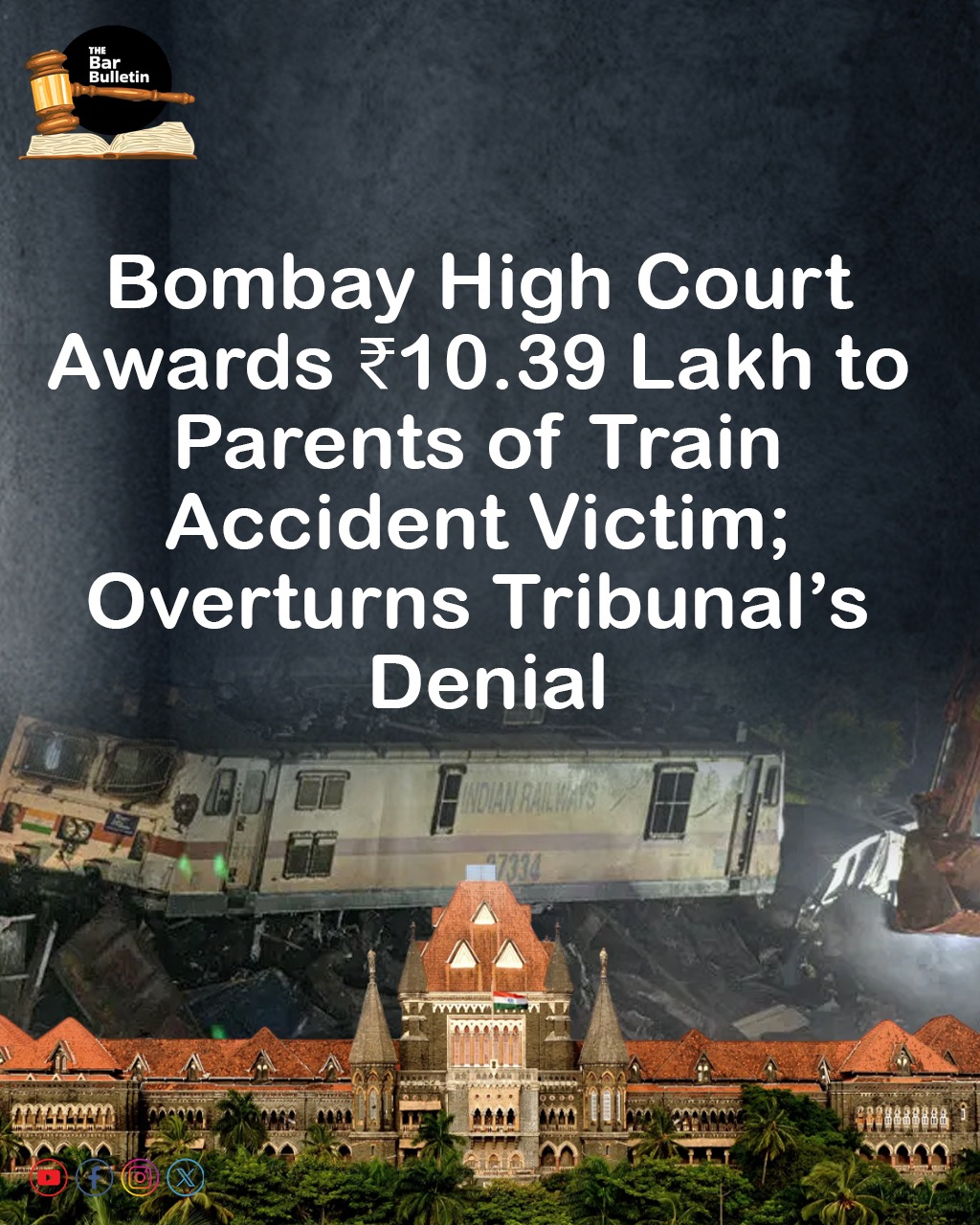The Bombay High Court has awarded compensation of ₹10.39 lakh to the parents of a 23-year-old man who died after allegedly falling from a local train in 2007. The Court set aside the Railway Claims Tribunal’s earlier decision, which had dismissed the family’s claim on grounds of insufficient evidence and suspicion over whether the deceased was a bona fide passenger.
Justice M.M. Sathaye held that the deceased, was indeed a valid passenger travelling with a second-class season pass and that his death constituted an “untoward incident” under Section 123(c)(2) read with Section 124A of the Railways Act, 1989. The Court reiterated that liability in such cases is based on the principle of strict liability and does not require proof of fault or negligence.
The Tribunal had rejected the claim citing doubts over the circumstances of death. It relied on the fact that the deceased’s body was found 35 feet from the tracks and suggested that he may not have fallen from a train at all. However, the High Court found this reasoning flawed and inconsistent with documentary and circumstantial evidence.
Justice Sathaye pointed to the recovery of a valid railway pass from the deceased’s wallet, a timely missing person report filed by the family, and consistent findings from the inquest report and the Station Master’s documentation. The Court accepted the possibility that the body may have rolled or been dragged due to the terrain or speed of the train, dismissing the Tribunal’s observations as perverse.
Relying on the Supreme Court’s decision in Union of India v. Rina Devi (2019) 3 SCC 572, the High Court noted that contributory negligence by the deceased is not a ground to deny compensation under the Railways Act. It concluded that the claimant’s parents were entitled to relief.
Accordingly, the Court directed the Railways to pay ₹4 lakh as statutory compensation along with 9% interest from the date of the accident, amounting to a total of ₹10,39,000. The amount is to be paid within six weeks.
Appearances:
Appellants: Mr. Kuldip Singh for the Appellants.
Respondents: Mr. T.J. Pandian a/w Ms. Prajakta Joshi, Mr. Gautam Modanwal and Ms. Noorjahan Khan

